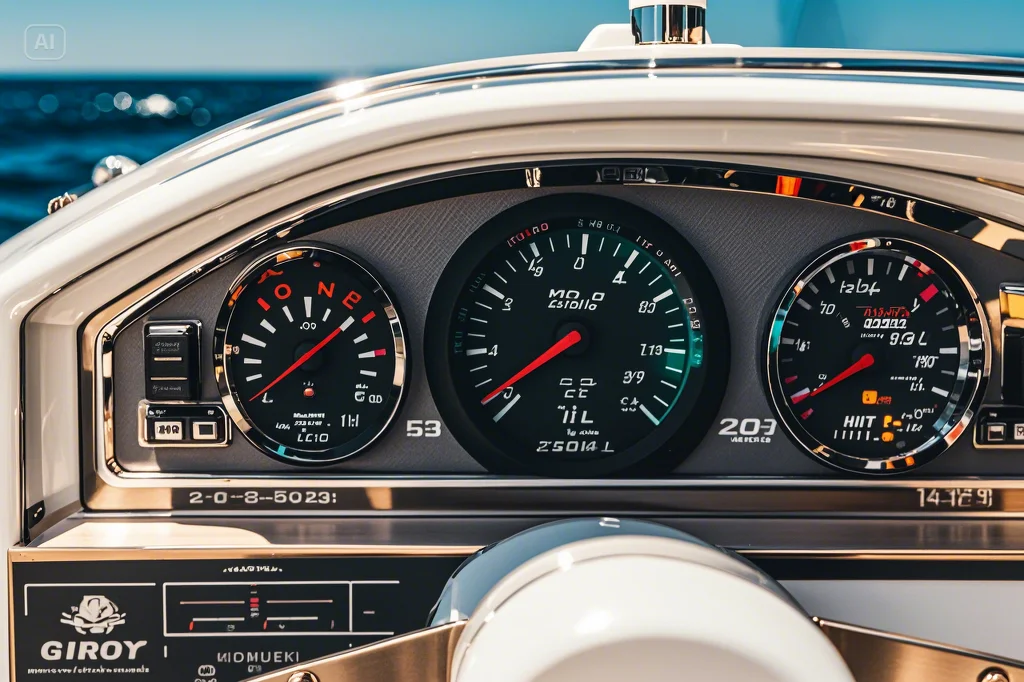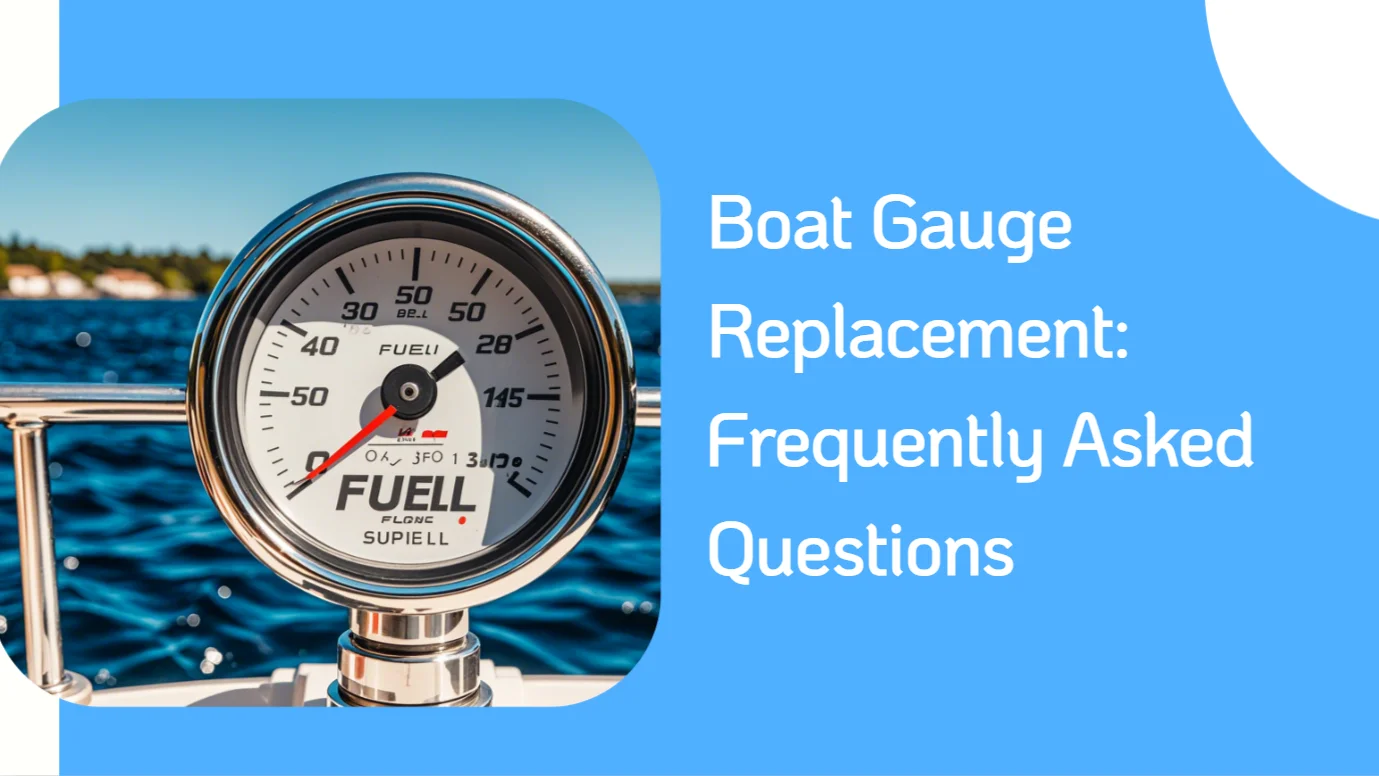Boat gauge replacement is a crucial aspect of maintaining your vessel’s performance and safety. Whether you’re dealing with a faulty marine fuel gauge and sender or need to replace your boat speedometer, understanding the ins and outs of gauge replacement can save you time and money. This article addresses common questions about boat gauge replacement, providing you with the information you need to make informed decisions.
Quick Answer
Boat gauge replacement involves removing old, malfunctioning gauges and installing new ones to ensure accurate readings for fuel, speed, and engine performance. Costs can vary widely based on the type of gauge and installation complexity.
[BUTTON:]
Introduction
Accurate gauges are essential for safe navigation and operation of any boat. Whether it’s the marine fuel gauge and sender, boat speedometer, or boat tachometer, each gauge plays a vital role in providing real-time information about your vessel’s performance. Over time, these gauges can become unreliable due to wear and tear, electrical issues, or exposure to harsh marine environments. In this article, we will explore the most frequently asked questions about boat gauge replacement, helping you understand what you need to know for effective maintenance.
- Marine Motor Parts: A Comprehensive Guide to Maintenance and Repair
Marine Boiler Service Prices: How Much Does Marine Boiler Service Cost in 2024?
Marine Boiler Maintenance: Frequently Asked Questions

Frequently Asked Questions
1. What is Boat Gauge Replacement?
Boat gauge replacement refers to the process of removing old or malfunctioning gauges from your boat’s dashboard and installing new ones. This includes various types of gauges such as marine multifunction gauges, marine fuel gauge sender, and others. Properly functioning gauges are crucial for monitoring your boat’s performance, ensuring safety on the water.
[CATEGORY_LINK: ]
2. How much does Boat Gauge Replacement cost?
The cost of boat gauge replacement can vary significantly depending on several factors:
- Type of Gauge: Simple gauges like a speedometer may cost less than complex multifunction gauges.
- Labor Costs: Professional installation can add to the overall expense.
- Brand and Quality: High-quality or brand-name gauges often come at a premium.
On average, expect to pay between $100 to $500 for parts and labor combined for a complete gauge replacement. For example, a boat speedometer replacement might range from $150 to $300, while a more complex marine multifunction gauge could cost upwards of $500.
Marine Fuel Gauge and Sender Prices: How Much Does Replacement Cost in 2024?
3. What factors affect Boat Gauge Replacement quality?
Several key factors can influence the quality of your boat gauge replacement:
- Gauge Quality: Higher-quality gauges tend to last longer and provide more accurate readings.
- Installation Method: Professional installation usually ensures that gauges are correctly wired and calibrated.
- Environmental Conditions: Exposure to saltwater, humidity, and sunlight can affect the longevity of your gauges.
Understanding these factors can help you make informed choices when selecting new gauges for your boat.
Marine Boiler Repairs: A Comprehensive Guide to Maintenance and Troubleshooting

4. How do I know when my boat gauges need replacing?
Signs that indicate it’s time for boat gauge replacement include:
- Inaccurate Readings: If your fuel level or speed readings fluctuate wildly or remain static.
- Physical Damage: Cracks or corrosion on the gauge face can impair visibility.
- Electrical Issues: Flickering lights or complete failure of the gauge display.
Regular inspections can help catch these issues early, allowing for timely replacements before they lead to more significant problems.
[CATEGORY_LINK]
5. Can I replace my boat gauges myself?
Yes, many boat owners opt for DIY replacements for their gauges. However, it’s essential to have some basic knowledge of electrical systems and wiring. Here’s a simple guide:
- Disconnect the battery before starting any work.
- Remove the old gauge by unscrewing it from its mount.
- Disconnect the wiring harness carefully.
- Connect the new gauge according to manufacturer instructions.
- Secure the new gauge in place and reconnect the battery.
If you’re unsure about any step in this process, consider consulting a professional to avoid mistakes that could lead to further issues with your boat’s operation.
Money-Saving Tips
Here are some tips to help you save money on your boat gauge replacement:
- Shop Around for Parts: Compare prices from different suppliers before purchasing your replacement boat gauges.
- Consider Used Gauges: If you’re on a tight budget, look for second-hand or refurbished gauges that are still in good condition.
- DIY Installation: If you’re handy with tools, consider replacing the gauges yourself to save on labor costs.
Implementing these strategies can help you manage expenses while ensuring your boat remains functional and safe on the water.
[BUTTON: Find top-rated Service Professionals near you]

Additional Resources
- Replacement Boat Gauges: A Step-by-Step Guide
Marine Parts Near Me: How Much Do They Cost in 2024?
Outboard Engine Parts: Frequently Asked Questions
Conclusion
In conclusion, understanding the ins and outs of boat gauge replacement is essential for maintaining your vessel’s performance and safety on the water. By recognizing when it’s time to replace your gauges and knowing how to do so effectively, you can ensure that your boating experience remains enjoyable and trouble-free. Don’t wait until it’s too late—take action today!
[CATEGORY_LINK]
[BUTTON: ]

